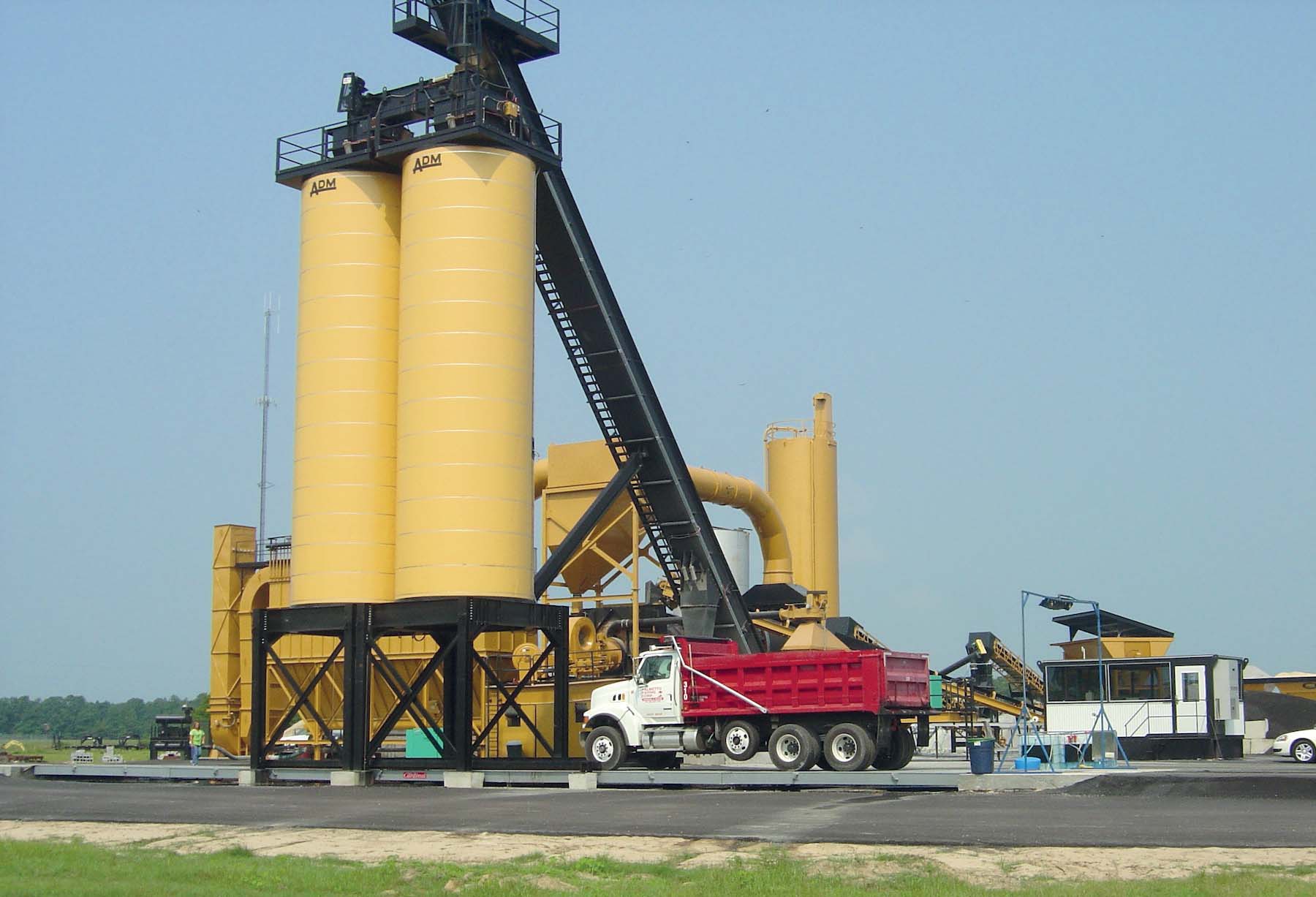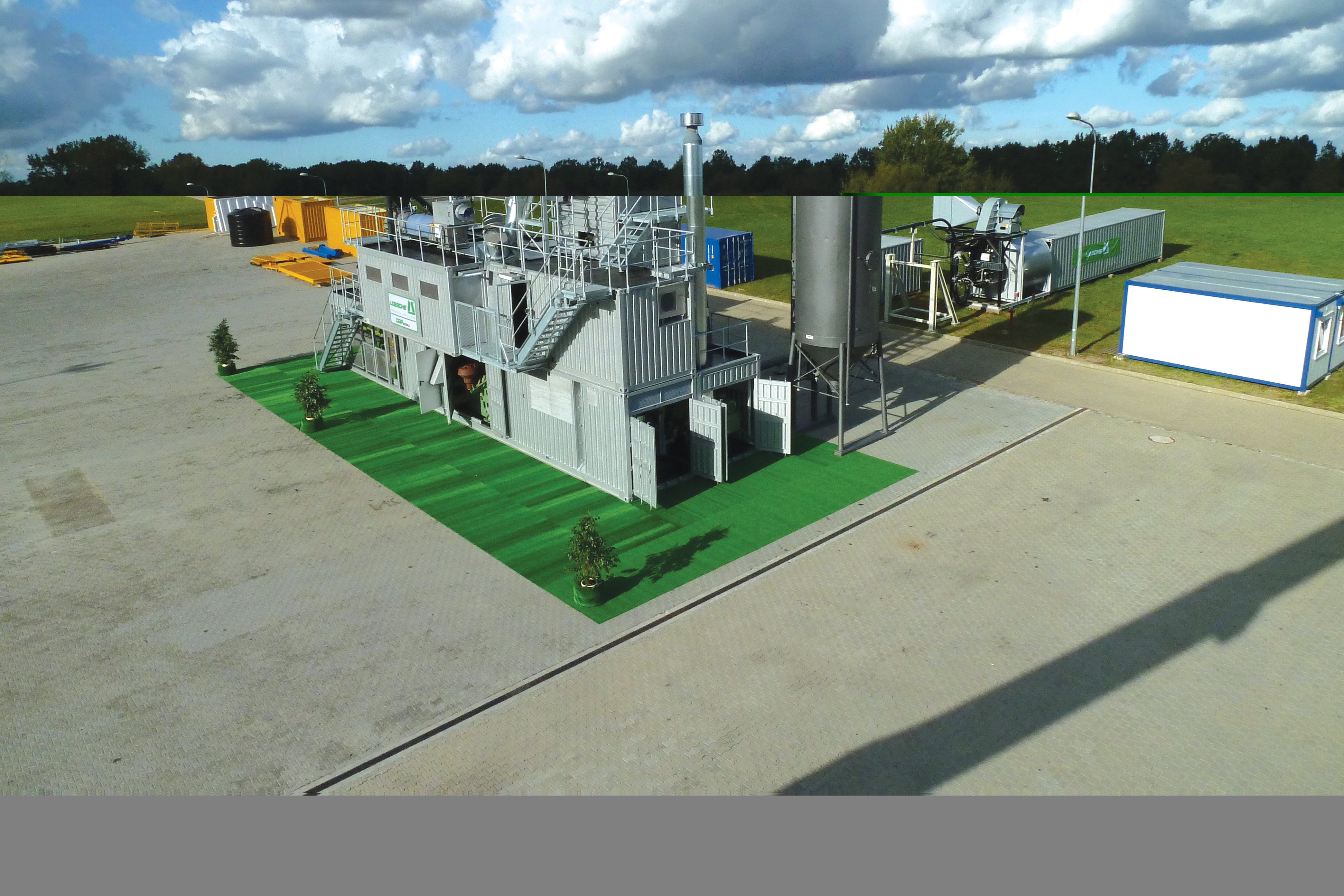New asphalt plant technology is being introduced by a range of manufacturers to meet varying needs and increase system versatility. Manufacturers have developed advanced new systems that boost efficiency, with recycling taking a high profile in many markets around the globe.
US-based firm
Available drag conveyors can deliver mixed asphalt to the silos, where its temperature is maintained until discharged.
The silo cone is double welded to the silo barrel, which extends past the cone and is heated with pressure tested hot oil tubes. Asphalt producers also have the option to choose an electric heating system to maintain asphalt temperature.
Producers can equip silos with low material signal alarms and standalone remote level monitors and displays, as well as optional remote location lubrication systems and AR or ceramic cone liners and drag conveyor floor liners.
ADM Loadout computers work in conjunction with truck scales, weight batchers or reverse weigh systems. Operators use the loadout computer to access truck loading data, job files, silo inventory and more.
The crane-set models are at the larger end of the silo capacities with transport options available for some of these units. Producers transport crane-set portable silos using a built-on gooseneck with a fifth-wheel kingpin hitch and dual-axle air ride suspension.
The self-erect silos are available for the smaller capacities. The self-erecting silo is raised using heavy-duty cables attached to the silo and the drag conveyor. The drag conveyor is raised using a hydraulic cylinder system.
Producers transport self-erect silos on a gooseneck trailer with a fifth-wheel kingpin hitch. A trailer with a quad-axle and air ride suspension supports large units. Small and midsized trailers feature leaf spring suspension and either a tandem or tri-axle.
Asphalt production needs are changing in China, with environmental factors becoming increasingly important. Lieven van Broekhoven, executive vice president sales and marketing at
According to van Broekhoven, factors such as noise, exhaust emissions and smell are now key issues when installing asphalt plants in China’s urban areas. He said that the
For the asphalt plant manufacturers this will mean the firms will only be able to supply the latest, low emission equipment for the Chinese market. He continued, “We’re working on a plant that’s completely enclosed. You don’t even know it’s an asphalt plant when you see it.”
Meanwhile, recycling is another increasingly important factor for the Chinese market, with the new requirements on the use of RAP for road paving now coming into force. Ammann is supplying one of its latest HRT320 plants to a customer in China.
The company is also offering a new recycling unit, the RSS 120-M Shredder, Iron Separator and Screener, for handling RAP for China and the Asia Pacific market. According to van Broekhoven, “It’s designed specifically for breaking up RAP before you put it into an asphalt plant.”
The RSS 120-M Shredder, Iron Separator and Screener is a mobile machine that has a three-in-one capability as it can function as a shredder, iron separator and screener. The machine offers a suitable solution for recycling asphalt feed material that ranges in size from milled cuttings to larger pieces. Protective processing also maintains desired grain sizes. The RSS 120-M can go from installation to production in as little as 30 minutes. The machine is track-mounted for maximum mobility on all types of terrain.
A key development for
The latest asphalt plant from
A key feature of the plant according to the firm is the air suction system installed at several key points to help with pollution control. The separate baghouse filter for the cold feeder section is equipped with automatic sensors that are activated when aggregates are being loaded into the system using a wheeled loader. This baghouse filter also picks up dust from the collecting belt as well as the throw belt, further improving the environmental performance of the whole system.
The revised baghouse filter system has been modified to ensure that the bitumen fumes and odour emissions are minimised. In addition, bitumen fumes emitted from the bitumen tanks and mixer discharge are absorbed through a ducting system. This utilises injections from fine fillers to absorb any oil droplets in the air, before being processed in a baghouse filter. The fumes are then filtered using a special low temperature plasma process that is said to be highly efficient. The special plasma system breaks down the molecules to remove the odour.
The firm has already supplied its first CSM4000 plant to a Chinese customer, a large system capable of producing up to 320tonnes/hour. With its low emissions technology, this plant also meets the increasingly tough requirements from the Chinese authorities on reducing smoke, fumes and dust emissions from asphalt plants.
Designed to comply with the latest requirements on the use of recycled asphalt pavement (RAP) in key construction markets, the firm says that the FRT integrates an environmentally-friendly approach with an innovative mechanical structure and the latest industrial design.
According to Marini the machine offers a new concept for recycling duties. The firm says that this solution offers lower operating and materials costs than previous generation equipment for materials recycling applications, improving overall cost-efficiency for the customer.
Features of the FRT unit include easy daily maintenance due to anti-clogging features, a high RAP input percentage and a special design that reduces its total height. The FRT features a 6tonne capacity, high efficiency mixer and can deliver from 320-360tonnes/hour, with a
RAP rate of 55% for each 6tonne batch for example.












